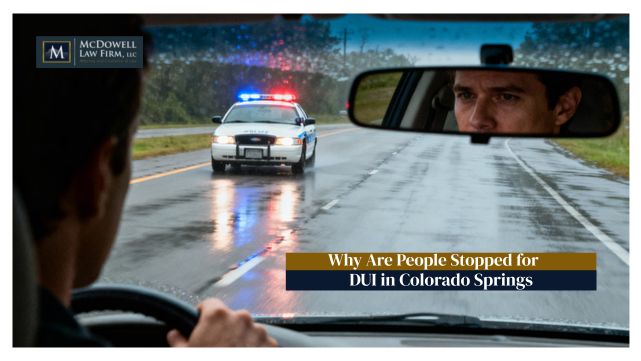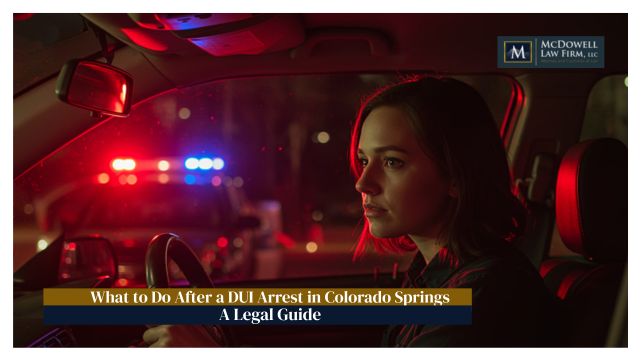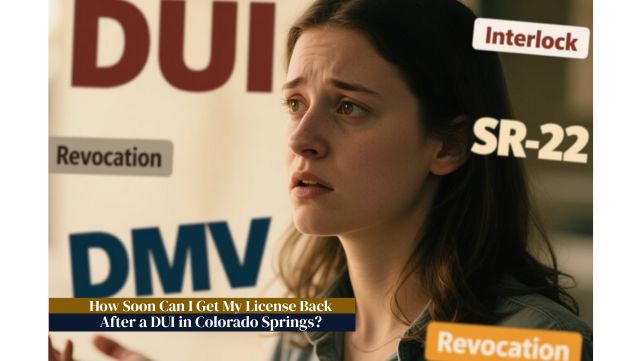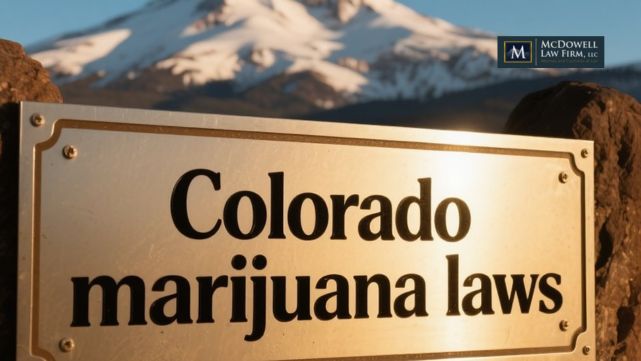If you get stopped for suspicion of driving under the influence (DUI) in Colorado one of the first things the officer will ask you to do is take a breathalyzer. For many people this can be a scary and confusing situation. You might be thinking, “Can I refuse the test?” and “What happens if I do?”
Knowing your rights and the legal consequences of refusing a breathalyzer in Colorado is key to making smart decisions during a DUI stop. In this post we’ll go over Colorado’s laws on breathalyzers, express consent, penalties for refusal and how refusal can affect your DUI case.
Express Consent in Colorado: What Does That Mean?
Colorado is an express consent state for breathalyzers and chemical tests. That means by driving on Colorado’s public roads you’ve given your consent to a chemical test (breath, blood) if an officer has probable cause to believe you’re under the influence of alcohol or drugs.
So, the bottom line is your consent to a breathalyzer test is assumed by law the moment you get in the driver’s seat. You can still refuse a test, but it comes with penalties. If the officer has reason to believe you are under the influence of drugs, he can limit the test to blood only, as drugs cannot be tested in the Intoxilyzer 9000 breath machine.
What Happens If I Refuse a Breathalyzer?
If you refuse a breathalyzer after being stopped for DUI several things can happen. Keep in mind the PBT (roadside handheld test) and the evidentiary test completed on an Intoxilyzer 9000 are very different tests, with different consequences. Here’s what you need to know about the short-term and long-term consequences to a refusal of the evidentiary (post-arrest) chemical breath test.
1. Administrative License Suspension
The first consequence of refusing a breathalyzer is a revocation of your driver’s license. Under Colorado law, if you refuse to take a test your license will be suspended even if you’re never convicted of DUI. The length of suspension depends on your prior record:
- First refusal: 1 year
- Second refusal: 2 years
- Third refusal: 3 years
This administrative suspension is handled by the Colorado DMV and is separate from any criminal penalties you may face in court. You do get to have a hearing on the refusal, but they are typically difficult to win, unless the officer made a mistake.
Even if you refuse, you may be eligible for early reinstatement of your license after 2 months. You will be required to obtain an interlock, SR-22 insurance, and enroll in alcohol classes. Check with the Colorado DMV to verify your conditions/requirements.
2. IID Requirement
After your suspension period is over you may have more requirements. In many cases you’ll be required to install an ignition interlock device (IID) to get your license back. An IID requires you to blow into a breath test before your car will start and you’ll likely have to have it installed for at least 2 years depending on your case.
3. Refusal as Evidence in Court
Refusing a breathalyzer can also hurt your DUI case if it goes to court. Prosecutors will argue that your refusal is evidence of consciousness of guilt, meaning you refused the test because you knew you were drunk. This makes your defense more difficult because juries often view a refusal as you trying to hide something.
In some cases, law enforcement may also get a blood test if they get a warrant so refusal doesn’t always prevent the state from getting evidence of intoxication.
Refusing a Breathalyzer vs. Taking the Test
Now you’re wondering if it’s ever a good idea to refuse a breathalyzer test. You need to weigh the consequences of refusal against the consequences if you take the test and are over the limit.
In Colorado the legal blood alcohol concentration (BAC) limit is 0.08% for drivers 21 and over and 0.02% for drivers under 21. If your BAC is above these limits you can be charged with DUI. A lower BAC (0.05% to 0.08%) can be a DUI per se or DWAI (Driving While Ability Impaired) which has lesser penalties.
If you take the test and your BAC is over the limit you’ll face the penalties for DUI which may include:
- Fines
- Jail time
- License suspension
- Community service
- DUI education programs
The penalties get worse with higher BAC levels, prior DUIs and other factors like if there were minors in the car at the time of arrest.
But refusing the test doesn’t necessarily protect you from those consequences. In fact, you’ll still face many of the same penalties if convicted of DUI plus the refusal penalties (e.g. longer license suspension, IID requirement).
When Can You Legally Refuse a Breathalyzer?
There are two main types of breathalyzer tests in Colorado: pre-arrest and post-arrest. The type of test you’re being asked to take can affect your rights.
- Pre-arrest breath tests: Sometimes referred to as preliminary breath tests (PBTs) these tests are often given at the roadside before you’re officially arrested. You don’t have to take this test and there’s no penalty for refusing a PBT. But refusing may form a part of the officer’s probable cause to arrest you and ask for a post-arrest test.
- Post-arrest breath tests: If you’ve been arrested for DUI you are required to submit to a chemical test under Colorado’s implied consent law. This can be a breath or blood test and refusal carries the penalties above (license suspension, IID requirement etc.).
Defending Against DUI and Breathalyzer Refusal Charges
If you’ve refused a breathalyzer test and are charged with DUI you need an experienced criminal defense attorney on your side. An attorney can help you navigate your case, challenge the stop or arrest, and minimize the penalties.
One defense strategy is to question the validity of the stop. If the officer didn’t have probable cause to stop you or made mistakes during the stop you may be able to get the charges reduced or dismissed. If law enforcement didn’t follow procedure when asking for the breathalyzer test or getting a warrant for a forced blood test this could impact the admissibility of the evidence.
Conclusion: Know Your Rights and the Consequences
You can refuse a breathalyzer test in Colorado but it comes with big legal consequences including automatic license suspension and potentially harsher penalties in court. Weigh those consequences against the possible outcomes of taking the test and talk to a DUI attorney as soon as possible after your arrest.
The legal system after a DUI arrest can be confusing but knowing your rights and the penalties for refusing a breathalyzer test is key to making informed decisions about your defense. If you’ve been charged with DUI in Colorado Springs contact a DUI defense attorney to get your options and protect your rights.






